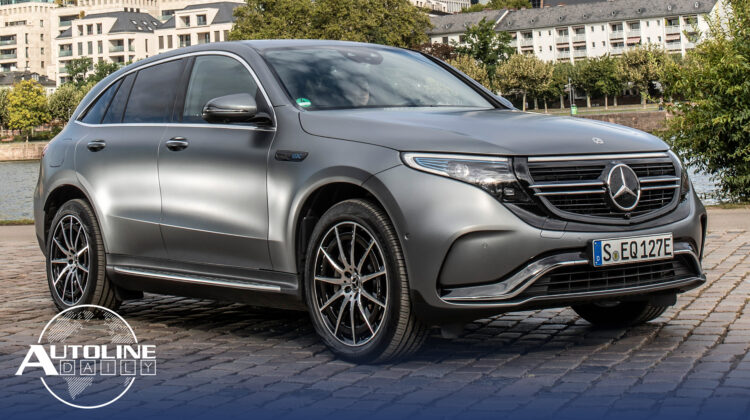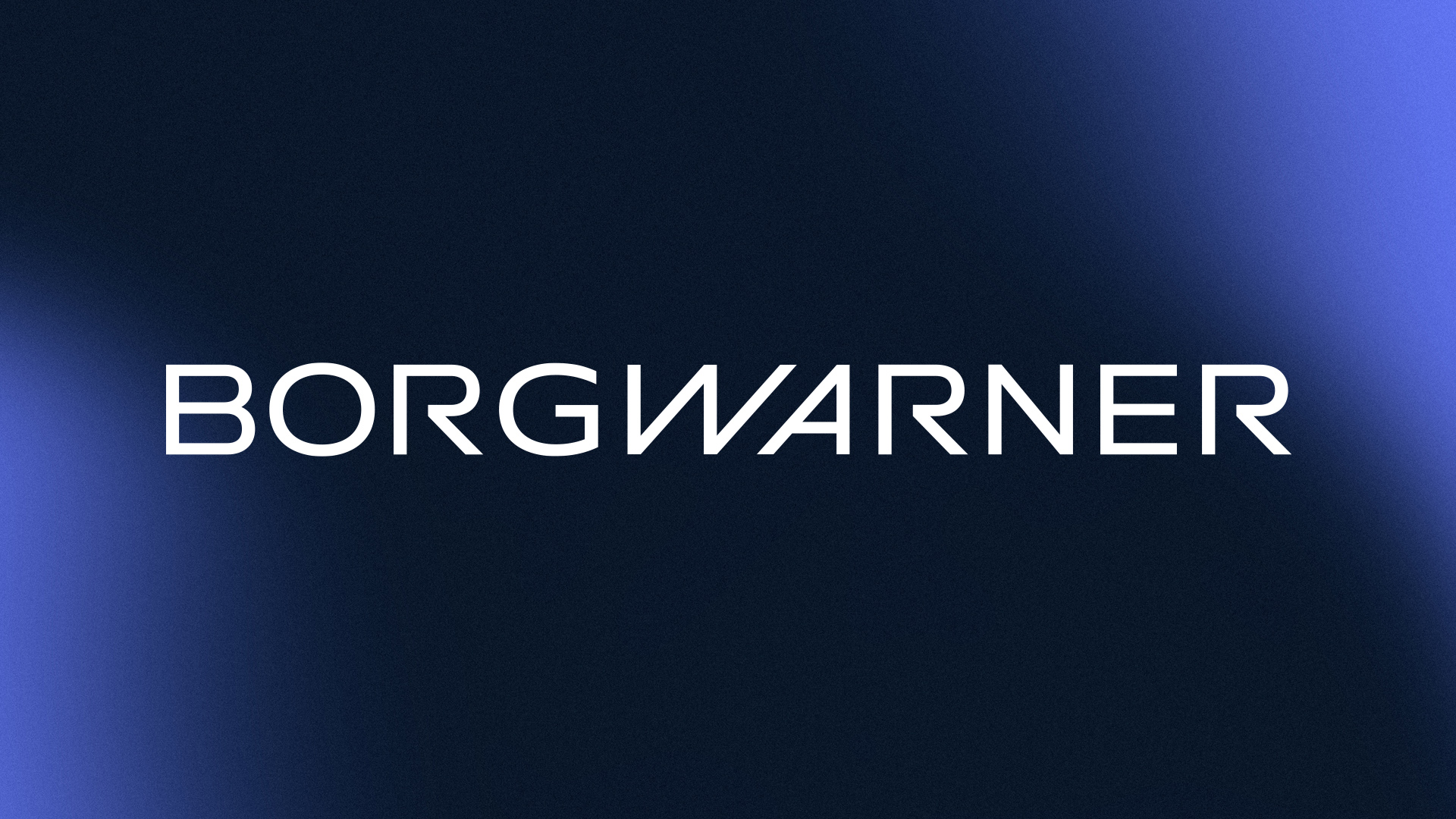
Follow us on social media:
Runtime: 8:40
0:07 Mercedes Slashes EQC Production Due to Battery Shortage
0:52 Canada Slaps Volkswagen with Diesel Fine
1:26 Jeep & Suzuki Diesels Exceed EU Limits
1:49 Tesla Cybertruck’s Paper Instrument Panel
2:57 Disengagements Not a Good Way to Measure AVs
4:13 China’s AIWAYS Puts Pressure on European Automakers
6:01 Consumers Not Willing to Pay Much for Technology
6:45 Bridgestone Develops Airless Tire for Commercial Trucks
7:27 GM Concept Improves Trailer Braking
Visit our sponsor to thank them for their support of Autoline Daily: Bridgestone.
This is Autoline Daily reporting on all aspects of the global automotive industry.
MERCEDES EQC HURT BY BATTERY SHORTAGE
Mercedes is having a tough time with its EQC electric car. Last year it planned to sell 25,000 but was only able to build 7,000. Germany’s Manager Magazin reports the company has been forced to slash production in half this year due to a shortage of battery cells from its supplier LG Chem. Mercedes planned to build 60,000 EQC’s this year but now will only make 30,000. And this is bad timing, since the company needs to hit stricter CO2 targets in Europe. A report from PA Consulting said Daimler faces a fine of over $1 billion if it doesn’t reach its goals. We have a related story coming up later in the show.
CANADA SLAPS VW WITH DIESEL FINE
Speaking of emissions, more automakers are facing punishment for cheating on diesel emissions. Yesterday, a judge in Canada approved a nearly $150 million fine for Volkswagen over its diesel cheating. While the fine is not that much for a major global automaker, it is the largest environmental penalty handed out in Canadian history. But it’s not getting off that lightly. The company also previously agreed to spend nearly $2 billion to buyback or fix affected models from Canadian customers.
JEEP & SUZUKI DIESELS EXCEED EU LIMITS
And regulators in Europe are threatening to ban sales of the Jeep Grand Cherokee and Suzuki Vitara. Authorities claim that the diesel versions of both models violate emission standards. Jeep has developed a fix and that was approved. Suzuki still needs to come up with a solution or it will be forced to stop selling the Vitara in Europe.
TESLA CYBERTRUCK’S PAPER INSTRUMENT PANEL
When Sandy Munro was on Autoline After Hours last week he talked about the Cybertruck using a paper screen on the instrument panel. His description left a lot of people thinking he got it all wrong so he sent us a clarification. He was talking about a technology called Paper Lion that was developed by a company in Michigan called Quantum Paper. The idea is to throw out all the plasma and LCD screens in a car and replace them with cardboard covered in a veneer of ultra-thin layers of electrically conductive ink. Not only does that slash weight, it reduces the amount of energy needed to power them by 50 to 80%. The picture you’re looking at here is the inventor Michael Feldman looking at a prototype paper TV that is taped to a wall.
DISENGAGEMENTS NOT A GOOD WAY TO MEASURE AVs
Earlier this week we reported on how Kyle Vogt, the CTO of Cruise, said that measuring disengagements of autonomous cars was not a good way to measure how good they are. Disengagements are when humans have to intervene and take control of an AV. Well, here’s why Vogt says that. Cruise found that drivers will disengage in an urgent situation just to be on the safe side. Cruise designed its system so drivers are aware of what an AV will do, but sometimes things happen too, so they disengage the system. And sometimes drivers just misjudge a situation and disengage. Cruise also believes in being polite to other drivers, so their drivers will disengage if another driver is aggressive or confused by the AV. OF course there are times when they disengage because the AV makes an error. Even more, Vogt says not all miles are equal. Disengagement data does not take into account driving complexity or weather. Besides, he says, sometimes passengers don’t even like how a real human is driving. We’ve all experienced backseat drivers telling the driver how and where to drive.
AIWAYS PUTS PRESSURE ON EUROPEAN AUTOMAKERS
AIWAYS is a Chinese automaker that will start selling its all-electric SUV in Europe this April. And this could pose a challenge for European automakers. Here’s our Autoline Insight. European automakers need EV credits to offset the CO2 emissions of their ICE cars. By the end of next year car makers must have their entire fleets average 95 grams of COs per kilometer or less, which works out to about 4.1 liters per 100 kilometers, or 57 miles per gallon. If they miss it, they’re fined 95 euros per gram per car. So the fines could be massive, and they need to sell more EVs to avoid them. But right now the number of consumers ready and willing to buy electrics is rather limited. And Chinese automakers exporting good looking EVs at lower prices could siphon off enough buyers to make it very difficult for European automakers to sell enough EVs to avoid fines. And so the race is on. European OEMs need to rush to the market with their EVs before the Chinese can gain a foothold.
Be sure to join us for Autoline After Hours this afternoon when our guest will be Jeff Shuster from LMC Automotive. We’ll be getting his insight on consumer demand for EVs, especially EVs that are not made by Tesla. And of course we’ll be getting into other topics, So join me, Gary Vasilash and Mike Austin from Hemmings for some great insights of what’s going on in the automotive industry.
CONSUMERS NOT WILLING TO PAY MUCH FOR TECHNOLOGY
Automakers and suppliers are pouring billions of dollars into developing new technology. But according to a new global survey from Deloitte, consumers aren’t willing to spend much for those new gadgets. It questioned more than 35,000 people in 20 countries. In the U.S., 60% of respondents said they were unwilling to spend more than $500 for advanced auto technology. And in Germany, a large majority of consumers said they wouldn’t pay more than 400 euros for advanced technology. Once these technologies become commonplace, consumer attitudes will probably change but these results have to be a little unnerving for the auto industry.
BRIDGESTONE’S AIRLESS TIRES FOR COMMERCIAL TRUCKS
Airless tires are a nifty idea, but we’ve always heard they would not be durable enough to withstand the weight for passenger cars. But now Bridgestone developed an airless tire that’s able to withstand up to 5,000 pounds and it will first offer them to commercial truck fleet operators. The center of the wheel is a thermoplastic web wrapped with a rubber tread wrapped around the outside. Bridgestone says that fleets encounter an air-related issue on their vehicles every 8,000 miles. Bridgestone is also going to provide a fleet of airless tire bicycles at the 2020 Summer Olympics in Tokyo.
GM IMPROVES TRAILER BRAKING
Anyone that’s had to tow a trailer knows it can be a harrowing experience, but GM is taking some of the worry out of trailering. It developed a new concept for trailer braking, called eBoost. The system uses upgraded brake rotors, calipers and tires and allows the truck to control trailer braking through the existing seven-pin trailer wire connector. GM claims a truck with the system can stop in the same distance that it does without a trailer. And it improves stopping distance by up to 20% or roughly 40 feet compared to a truck towing a trailer with traditional electric trailer brakes. eBoost also doesn’t need any extra connections and helps mitigate trailer sway by using stability control.
But that’s it for today, thanks for watching and please join us again tomorrow.
Thanks to our partner for embedding Autoline Daily on its website: WardsAuto.com

John McElroy is an influential thought leader in the automotive industry. He is a journalist, lecturer, commentator and entrepreneur. He created “Autoline Daily,” the first industry webcast of industry news and analysis.





